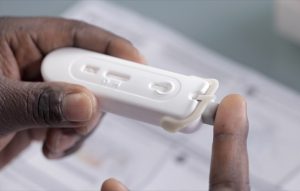A recent study by researchers from the Institute for Implementation Science in Population Health at CUNY SPH suggests that fatalistic attitudes among Kenyan truck drivers may undermine the potential benefits of HIV self-testing (HIVST) programs. The research, published in AIDS and Behavior, sheds new light on the complex factors influencing HIV testing behaviors in high-risk populations.
The study, led by alumna Thae Oo as part of her master’s project, revealed that offering HIVST to truck drivers in Kenya initially increased testing rates, but this effect did not persist over a six-month follow-up period. The research aimed to explore underlying reasons for this decline, utilizing the Health Belief Model to assess factors such as HIV risk perception, self-efficacy, and fatalism as potential modifiers of the impact of HIVST availability.
The study found a significant interaction between the intervention and fatalism, indicating that while the HIVST intervention was associated with higher testing rates among participants with low fatalism, it was linked to lower testing rates among those with high fatalism. Truck drivers in Kenya often exhibit fatalistic views, feeling a lack of control over their health and life circumstances. This perspective appears to negate the benefits of offering HIVST.
“To improve the impact of HIV self-testing among truck drivers, psychosocial interventions addressing fatalistic attitudes may be necessary,” says Oo. “Our findings highlight the importance of understanding psychological barriers when implementing health interventions in high-risk populations.”




